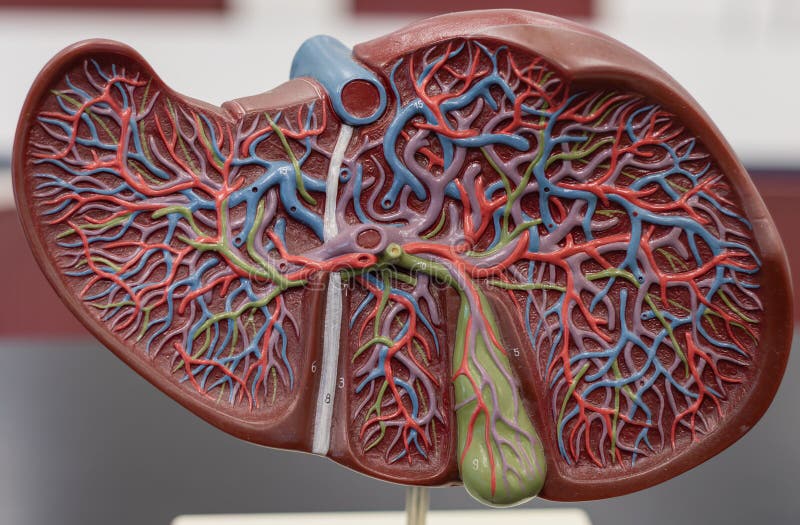What if I told you that everything you eat must pass through a sophisticated security checkpoint before entering your bloodstream? Meet the hepatic portal system—your liver’s brilliant quality control network that literally stands between your gut and your heart.
What Is the Hepatic Portal System?
The hepatic portal system is a unique blood circulation pathway where blood from your digestive organs makes a mandatory pit stop at the liver before returning to general circulation. Unlike normal veins that go straight to the heart, portal blood takes a detour through liver processing.
Think of it as airport security for your bloodstream: nothing gets through without inspection.
Why This System Exists: Your Body’s Genius Design
The First-Pass Filter
Every bite you take could contain toxins, excess nutrients, or harmful substances. Your liver acts as the ultimate bouncer, screening everything before it reaches vital organs like your brain and heart.
Here’s the brilliant part: If poison enters your stomach, it doesn’t immediately flood your entire body. It gets filtered and neutralized by your liver first, potentially saving your life.
The Nutrient Traffic Controller
After a big meal, your blood sugar could skyrocket to dangerous levels. The liver intercepts this glucose-rich blood and either:
- Stores excess sugar as glycogen for later
- Converts it to fat for long-term storage
- Releases just enough to maintain steady blood sugar
Without this system, eating a candy bar could literally kill you from acute hyperglycemia (high sugar levels in your body).
The Anatomy: Understanding the Highway System
The Major Routes
Picture a highway network converging on one central hub:
Superior Mesenteric Vein: Carries blood from your small intestine, cecum, and ascending colon—where most nutrient absorption happens.
Splenic Vein: Drains your spleen and parts of your pancreas and stomach, bringing immune cells and digestive enzymes.
Inferior Mesenteric Vein: Collects blood from your descending colon, sigmoid colon, and rectum.
Portal Vein: The main highway formed when these vessels merge, carrying all this processed blood straight to the liver.
The Liver’s Processing Centers
Inside your liver, portal blood flows through specialized capillaries called sinusoids. Here, hepatocytes (liver cells) work like customs agents, examining every molecule and deciding its fate.
Real-World Examples
The Alcohol Processing Plant
When Grandma sips her evening wine, 95% of that alcohol travels through the hepatic portal system. Her liver breaks it down using specific proteins that help speed up the chemical reactions in your body (enzymes) before any reaches her brain. This is why liver disease makes people dangerously sensitive to alcohol (because the security checkpoint is compromised).
The Medication Highway
That aspirin for your headache? Most of it gets metabolized by your liver first through this system. This is why some medications need higher doses—the liver processes much of the drug before it reaches its target.
The Sugar Rush Controller
When a teenager chugs a energy drink, their hepatic portal system intercepts that massive glucose load. The liver quickly converts excess sugar to fat and glycogen, preventing dangerous blood sugar spikes that could cause coma.
The Brilliant Backup Systems
Collateral Circulation
What happens if the portal system gets blocked? Your body has backup routes called portosystemic anastomoses. Blood can bypass the liver through alternative pathways, though this loses the filtration benefit.
The Esophageal Emergency Exit
In liver disease, blood backs up and can create varicose veins in the esophagus (esophageal varices). These are dangerous but show how your body creates emergency detours when the main highway is blocked.
When Things Go Wrong: Real Consequences
Portal Hypertension
Liver scarring of your liver (cirrhosis) blocks normal blood flow, creating high pressure in the portal system. This causes:
- Fluid buildup in the abdomen (ascites)
- Enlarged spleen
- Dangerous esophageal bleeding
Think of it like a traffic jam backing up throughout the entire highway system.
Liver Failure
Without a functioning hepatic portal system, toxins flood your bloodstream unchecked. Ammonia from protein breakdown reaches your brain, causing confusion and coma. It’s like removing all security checkpoints—chaos ensues.
The Evolutionary Masterpiece
Why Develop This System?
Early humans ate unpredictable foods—sometimes toxic plants, rotting meat, or unfamiliar substances. Those with better liver filtration survived to pass on their genes. The hepatic portal system is literally a survival mechanism perfected over millions of years.
The Energy Economics
This system also solved an energy problem. Instead of nutrients randomly flooding your bloodstream, the liver regulates their release based on your body’s current needs. It’s like having a smart power grid that prevents blackouts and brownouts.
Surprising Daily Applications
Fasting and Blood Sugar
During fasting, your liver releases stored glucose through this same system, maintaining steady energy levels. The portal circulation works in reverse—delivering nutrients out instead of processing them in.
Medication Timing
Ever wonder why some pills work better on empty stomachs? Food changes portal blood flow, affecting how quickly medications reach and are processed by your liver.
The Coffee Connection
That morning caffeine goes through hepatic processing, where liver enzymes determine how fast you metabolize it. Genetic variations in these enzymes explain why some people can drink coffee at midnight while others get jittery from afternoon tea.
The Bottom Line
The hepatic portal system represents biological engineering at its finest. It’s a dedicated security network, nutrient processing plant, and traffic control system all rolled into one. Every meal you eat, every drink you sip, every medication you take—all must pass this sophisticated checkpoint.
Without this system, eating would be lethal. Your liver doesn’t just clean your blood—it stands guard between the chaotic world of digestion and the precisely regulated environment your cells need to survive. It’s not just anatomy; it’s the reason you can enjoy that slice of birthday cake without dying from the experience.


